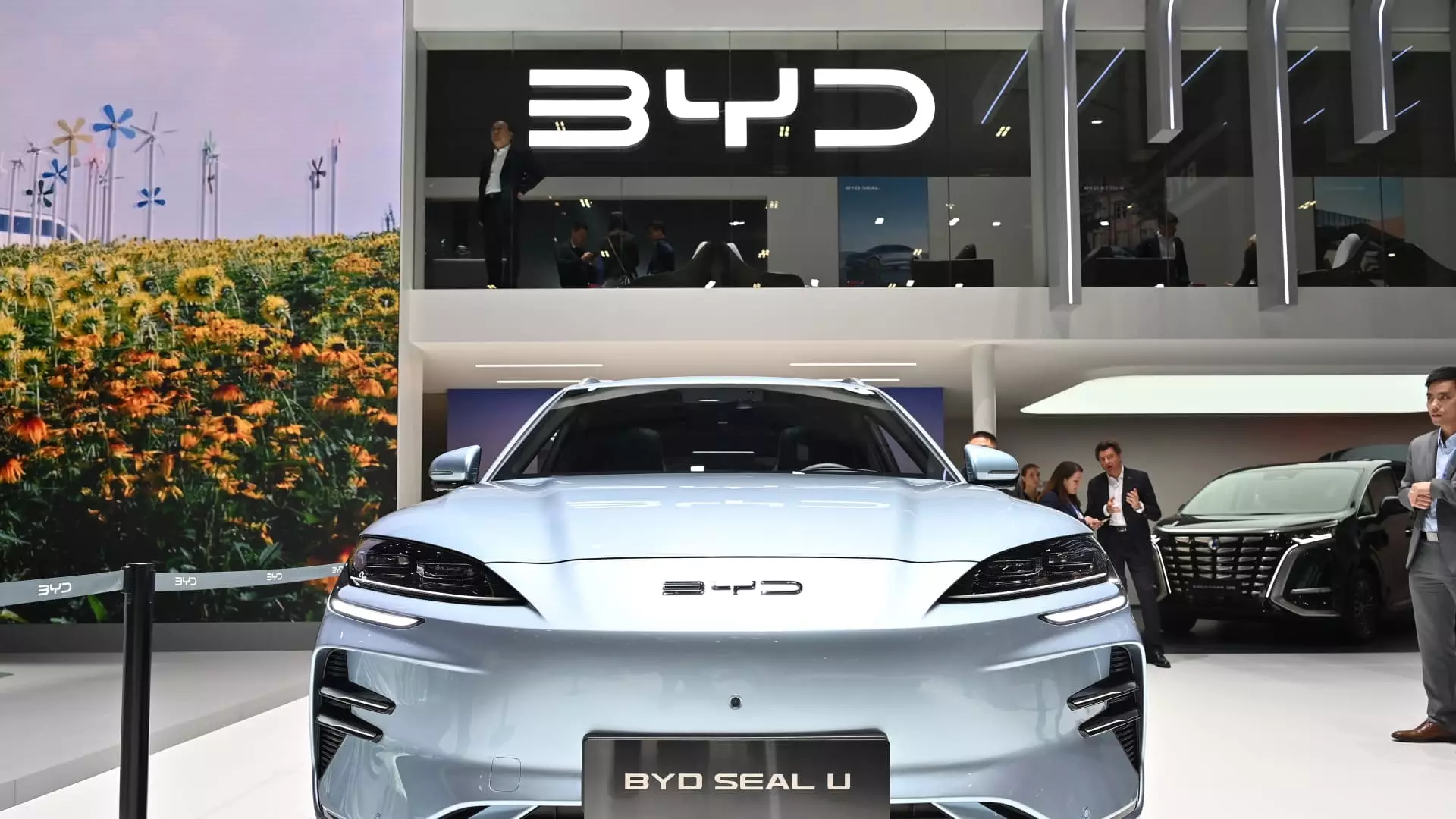The European Union has confirmed its decision to implement tariffs on electric vehicles imported from China, citing unfair subsidization as the reason for this move. The tariffs, ranging from 17.4% to 37.6%, are set to take effect on Friday and will impact automakers from Chinese giants like BYD to European brands producing cars in China, as well as U.S. automaker Tesla. This decision comes at a time when Chinese automakers are aggressively expanding into the European market with competitively priced electric vehicles, posing a threat to established automakers in the region.
Following the announcement of tariffs, Chinese EV makers have responded by issuing warnings of potential price increases. Nio, a prominent Chinese electric vehicle manufacturer, has stated that while it is currently maintaining prices for cars sold in Europe, adjustments may be necessary in the future due to the impact of tariffs. Similarly, Xpeng has assured customers awaiting deliveries or placing new orders before the tariffs take effect that they will be protected from price increases. However, the company has not ruled out the possibility of raising prices as a result of the levies.
Tesla, an American electric vehicle manufacturer with a factory in Shanghai, has also expressed concerns about the potential impact of tariffs. When the EU first announced the tariffs, Tesla indicated that it may need to increase prices for its Model 3 vehicle in Europe. The specific level of tariffs facing Tesla has not been disclosed by the EU, but the automaker is expected to incur individually calculated duty rates. These provisional tariffs will be in effect for four months, during which EU member states will vote on definitive duties that could last for five years.
The imposition of tariffs on Chinese electric vehicles by the EU has sparked criticism from Chinese officials, who have described the move as a protectionist act. Chinese Commerce Ministry spokesperson He Yadong has called for both parties to engage in sincere and expedited consultations to reach a mutually acceptable solution based on rules and reality. Despite the tariffs, Chinese EV manufacturers have reaffirmed their commitment to the European market and are exploring options such as establishing local manufacturing capabilities in Europe to mitigate the impact of tariffs.
Looking ahead, Chinese electric vehicle manufacturers like Xpeng and BYD are positioning themselves for long-term growth in the European market. Xpeng, in particular, has expressed its dedication to providing high-quality innovative products to European customers and is actively considering establishing a local manufacturing facility in Europe. BYD, a leading global EV maker, has announced plans to open its first European factory in Hungary, signaling its intent to further expand its presence in the region.
The implementation of tariffs on Chinese electric vehicles by the EU underscores the ongoing competition and challenges faced by established automakers in Europe. While Chinese EV manufacturers are adapting to navigate these changes and maintain their market presence, the long-term implications of these tariffs on the industry remain uncertain. Collaboration and open dialogue between stakeholders will be crucial in addressing trade tensions and ensuring a sustainable future for the electric vehicle market.


Leave a Reply